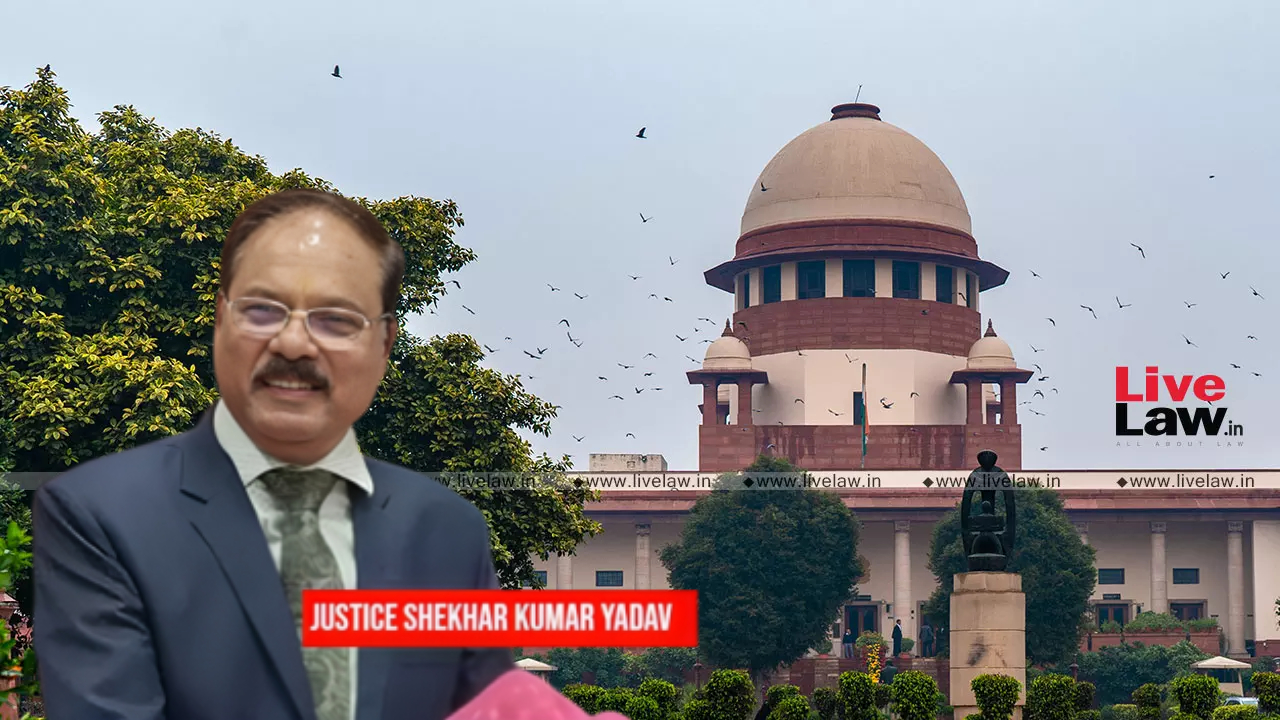 |
|
The Indian judicial system, a cornerstone of its democratic framework, recently found itself grappling with a significant controversy involving Justice Shekhar Kumar Yadav of the Allahabad High Court. His appearance before the Supreme Court Collegium stems from a speech delivered on December 8th at a Vishwa Hindu Parishad (VHP) event, a speech that has drawn widespread condemnation for its allegedly communal and derogatory remarks targeting the Muslim community. The incident highlights the delicate balance between a judge's right to freedom of expression and the crucial need for maintaining public trust and impartiality within the judiciary. The Supreme Court Collegium, the body responsible for recommending the appointment and transfer of judges, convened a meeting to address the matter, underscoring the seriousness with which the allegations are being treated. This meeting, originally scheduled for the weekend preceding, was postponed due to scheduling conflicts among the Collegium members, emphasizing the meticulous approach being taken by the apex court to ensure a fair and thorough investigation.
The core issue revolves around the content of Justice Yadav's speech. Reports indicate that he expressed views considered to be biased and inflammatory, suggesting that the country should operate according to the will of the majority and using derogatory language towards the Muslim community. The use of the slur 'Kathmul**h' further fueled the outrage and criticisms. The transcript of this speech, which reached the Supreme Court the week following the event, forms the basis for the Collegium's inquiry. The speed with which the Supreme Court responded, calling for details and summoning Justice Yadav, signals the court's commitment to addressing the concerns swiftly and decisively. This prompt action also underscores the sensitivity surrounding such matters and the potential implications for the judiciary's reputation and the public's confidence in its impartiality. The swift response also suggests a desire to proactively manage potential damage to the court's standing and prevent further erosion of public trust.
The appearance of Justice Yadav before the Collegium can be interpreted as a step towards upholding the principles of natural justice. By allowing him to present his side of the story and clarify his position, the Collegium is ensuring a fair hearing before any potential disciplinary action is considered. This adheres to fundamental principles of fairness and due process, which are essential not only in judicial proceedings but also within the internal workings of the judiciary itself. However, the controversy extends beyond the Collegium's internal proceedings. A Public Interest Litigation (PIL) has been filed in the Allahabad High Court against an impeachment motion already submitted to the Rajya Sabha Secretary General by 55 MPs. This concurrent legal action reflects the widespread public concern and the potential for a broader political dimension to the issue. The impeachment attempt further underscores the gravity of the situation and the potential consequences for Justice Yadav should the allegations be substantiated.
The incident raises critical questions about the boundaries of freedom of expression for judges, particularly in light of their significant role in upholding the rule of law and ensuring justice for all citizens. While judges are not immune to expressing their personal views outside of their official capacity, their public statements must be carefully considered, especially given the potential to undermine public confidence and impartiality. The line between expressing personal beliefs and engaging in conduct unbecoming of a judge is a delicate one, and this case serves as a crucial reminder of the responsibility that comes with holding such a powerful position within the judicial system. The outcome of this case will undoubtedly have significant ramifications, setting precedents for future instances where judicial conduct is called into question and impacting how the public perceives the judicial branch's commitment to fairness and impartiality.
The controversy surrounding Justice Shekhar Yadav highlights a broader concern regarding the intersection of religious beliefs, political affiliations, and the judiciary's role in upholding the secular principles of India’s constitution. The accusations of communal bias raise questions about the potential for personal beliefs to influence judicial decisions and the importance of maintaining a perception of neutrality and objectivity within the court. This case serves as a reminder of the constant need for introspection and vigilance to safeguard the independence and integrity of the judiciary. The ultimate resolution of this matter will not only impact Justice Yadav’s career but also have significant implications for the future conduct and accountability of judges in India, shaping the ongoing discourse on judicial ethics and public trust.
